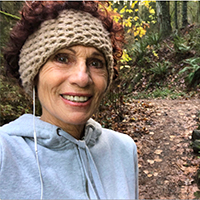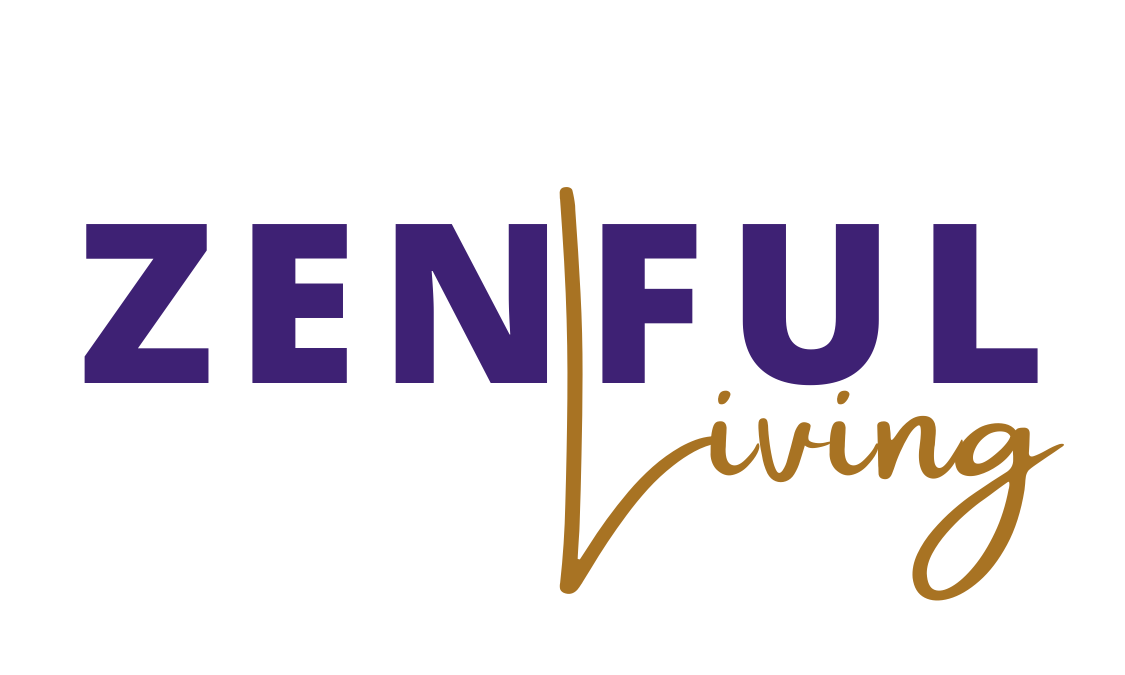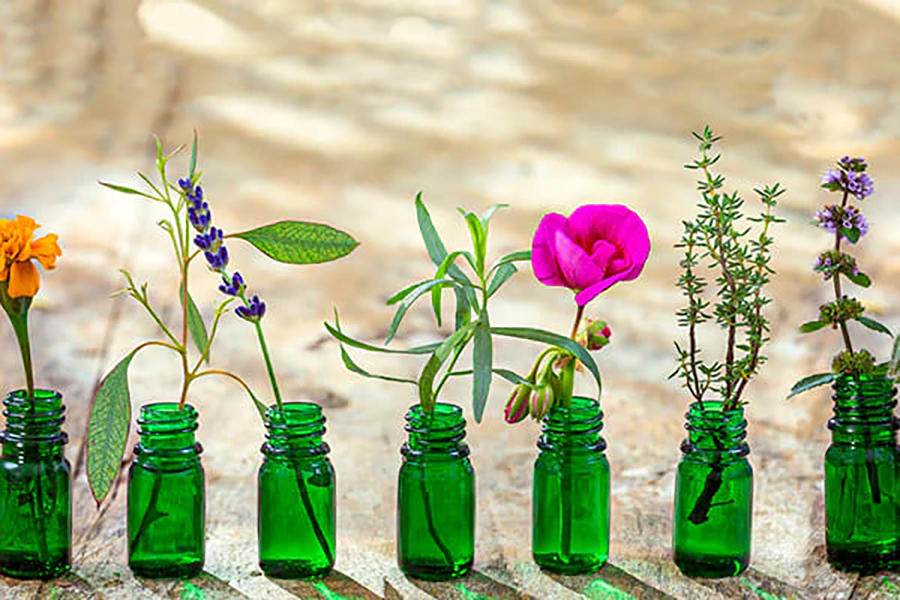The practice of aromatherapy can be dated back to ancient Egypt, where essential oils were extracted from plants and used in religious rituals, cosmetics, and medicinal purposes. The Egyptians valued the therapeutic properties of aromatic substances and used them in various ways to enhance their physical and emotional well-being.
Similarly, ancient Chinese and Indian cultures also recognized the power of essential oils for healing and relaxation. In traditional Chinese medicine, aromatic substances were employed to balance the flow of energy in the body and treat various health conditions. Meanwhile, Ayurvedic medicine in India integrated aromatic oils into massage and healing practices.
Moving forward in time, during the Middle Ages, aromatherapy continued to be a prominent part of medicine and wellness practices in Europe. However, with the rise of modern medicine, the use of essential oils gradually declined until the 20th century.
It was in the early 20th century when the term “aromatherapy” was coined by a French chemist and perfumer named René-Maurice Gattefossé. He accidentally discovered the healing properties of lavender oil when he applied it to a burn and noticed its remarkable effect on healing the wound. This event sparked his interest in the therapeutic potential of essential oils, and he began researching and promoting their use in medical treatments.
The practice of aromatherapy gained momentum in the 1980s and 1990s when alternative and complementary medicine became more popular. Today, aromatherapy is widely recognized as a holistic approach to wellness, often used alongside conventional treatments to promote relaxation, reduce stress, manage pain, improve sleep, and address various emotional and physical issues.
It’s amazing to see how this ancient practice has persisted through time and is now appreciated worldwide for its potential to support well-being and promote a sense of balance in our fast-paced lives. Whether it’s through diffusers, massage oils, or inhalation, aromatherapy continues to bring the beautiful scents and healing properties of essential oils into our daily lives.
Using essential oils as aromas, also known as aromatherapy, has been associated with various potential benefits for physical and emotional well-being. Some of the benefits include:
Stress reduction: Certain essential oils, such as lavender, chamomile, and bergamot, have calming properties that can help reduce stress and promote relaxation.
Improved sleep: Aromas like lavender and valerian are believed to promote better sleep and help with insomnia by inducing a sense of tranquility.
Mood enhancement: Essential oils like citrus oils (e.g., orange, lemon) and peppermint are known for their uplifting and invigorating scents that can improve mood and boost energy levels.
Pain relief: Some essential oils, such as eucalyptus and peppermint, have analgesic properties and may help alleviate headaches and muscle pain when used as aromas.
Respiratory support: Eucalyptus, tea tree, and other essential oils can help clear the airways and provide relief from congestion and respiratory issues.
Immune support: Oils like tea tree, eucalyptus, and oregano are believed to have antimicrobial properties that may support the immune system.
Relaxation and self-care: Aromatherapy can be a valuable tool for relaxation and self-care, creating a pleasant and soothing atmosphere.
Enhanced focus and concentration: Essential oils like rosemary and peppermint are known for their ability to improve mental clarity and focus. Inhaling these invigorating scents can help sharpen your mind and boost productivity.
Natural air fresheners: Unlike synthetic air fresheners, essential oils are derived from natural plant sources. Using essential oils as aromas provides a pleasant and chemical-free way to freshen the air in your home or workspace.
Aromatherapy for emotional support: Aromas can have a profound impact on emotions. For example, the comforting scent of ylang-ylang may help reduce feelings of anxiety or sadness, while the energizing scent of citrus oils can lift your spirits.
Mind-body connection: Aromatherapy can foster a deeper connection between the mind and body. By consciously inhaling the aroma of essential oils, you can create moments of mindfulness and relaxation, promoting overall well-being.
Customizable scents: Aromatherapy allows you to tailor the scents to your preferences. You can experiment with different essential oils and blends to find the ones that resonate best with you.
Non-invasive wellness practice: Using essential oils as aromas is a non-invasive wellness practice that can complement other healing modalities. It’s a gentle and enjoyable way to incorporate natural remedies into your daily routine.
Support for various health conditions: Aromatherapy may offer support for various health conditions, such as headaches, digestive issues, and menstrual discomfort. Certain essential oils have been traditionally used to address these concerns.
Stress relief during daily activities: Whether you’re at work, doing chores, or exercising, incorporating aromatherapy can create a more soothing and calming environment, helping you manage stress throughout your day.
Aromas for meditation and mindfulness: Aromatherapy can enhance your meditation or mindfulness practices by creating a serene and grounding atmosphere. Scents like frankincense, sandalwood, and patchouli are often used to deepen spiritual experiences.
Soothing aromas for bath time: Adding a few drops of essential oils to your bathwater can transform a regular bath into a spa-like retreat. Relaxing scents like lavender or chamomile can help melt away tension and soothe your senses.
Aromatherapy on the go: With essential oil roll-ons, and sprays you can take the benefits of aromatherapy wherever you go. Whether it’s a busy day at work or a long journey, a quick whiff of your favorite essential oil can provide a moment of comfort and calm.
Natural insect repellents: Certain essential oils, such as citronella, lemongrass, and peppermint, have natural insect-repelling properties. Using these oils as aromas can help keep pesky bugs at bay during outdoor activities.
Environmentally friendly cleaning: Instead of using chemical-laden air fresheners or cleaning products, you can create your own natural alternatives using essential oils. They not only leave a pleasant scent but may also have antimicrobial properties to help sanitize your living spaces.
Aromatherapy for emotional balance: Aromas can play a part in supporting emotional balance and overall well-being. Whether you seek relaxation, motivation, or comfort, the right blend of essential oils can help you find emotional equilibrium.
Connection to nature: Essential oils are derived from various plants, flowers, and trees, allowing you to bring a touch of nature indoors. Their aromatic scents can evoke fond memories of gardens, forests, or even seaside escapes.
Creativity and inspiration: Some essential oils, such as peppermint or lemon, are believed to enhance mental clarity and creativity. Diffusing these oils in your workspace may provide an inspiring environment for your projects.
Bonding and sharing: Aromatherapy can be a wonderful way to connect with others. You can share your favorite essential oils with friends and family, or even create personalized blends as thoughtful gifts.
Joyful self-care rituals: Incorporating aromatherapy into your self-care routine can be a delightful and nurturing practice. Whether it’s a soothing foot soak, a calming bedtime ritual, or an uplifting morning routine, essential oils can elevate these moments of self-care.
Aroma blends for special occasions: Aromatherapy offers a unique way to set the mood for special events and gatherings. From romantic dinners to holiday celebrations, you can create custom aroma blends that enhance the ambiance and make the occasion even more memorable.
Aromatic skincare: Essential oils are widely used in skincare products due to their beneficial properties. Adding a drop or two of skin-friendly oils like tea tree, lavender, or rosehip oil to your regular moisturizer can nourish your skin and provide a calming sensory experience.
Aromatherapy for children and pets: Aromatherapy can benefit not only adults but also children and even furry friends. Gentle oils like chamomile and lavender can be used in diffusers or diluted for massage to soothe little ones and create a calming environment for pets.
Home purification: In addition to removing toxins from the air, certain essential oils possess antimicrobial properties that can help purify your living spaces. Eucalyptus, tea tree, and lemon oils are popular choices for this purpose.
Aromatic culinary delights: Some essential oils are safe for culinary use and can add delightful flavors to your favorite dishes. From a drop of peppermint in your hot cocoa to a hint of orange in your salad dressing, culinary aromatherapy can elevate your dining experience.
Aromas for exercise and fitness: Peppermint and eucalyptus essential oils are often used in fitness settings for their refreshing and invigorating scents. Diffusing these oils in your workout area may help boost your energy and motivation.
Aromatic rituals for relaxation: Creating simple aromatic rituals can be a wonderful way to unwind and find tranquility in our busy lives. For example, inhaling the scent of your favorite essential oil before bedtime can signal your body that it’s time to relax and prepare for a restful sleep.
Aromatherapy for travel: Traveling can sometimes be stressful. Aromatherapy travel kits with calming oils like lavender or stress-relieving blends can be a comforting companion during your journeys.
Aroma journaling: Keeping an aroma journal can help you discover which scents resonate most with you and how they make you feel. This self-awareness can guide you in choosing the best aromas to suit your moods and needs.
Exploring new scents: Aromatherapy is an ongoing adventure. Don’t be afraid to explore new essential oils and blends to find the scents that resonate with your unique preferences and bring you joy. Embrace the aromatic wonders that essential oils offer and make them a delightful part of your daily life. The beauty of aromatherapy lies not only in its potential benefits but also in the joy it brings through the delightful scents that surround you.
Happy aromatherapy exploration and may the world of essential oils enrich your life in countless ways!

Darlene Mea is a long-standing media personality in the world of alternative everything. Alternative health and wellness practices is her main focus. Since the early 1980s Darlene has been involved in television, radio, print and multimedia. She represents all things natural, sustainable and life-promoting. She is dedicated to going beyond the status quo narrative in order to provide options for a more wholesome life.

